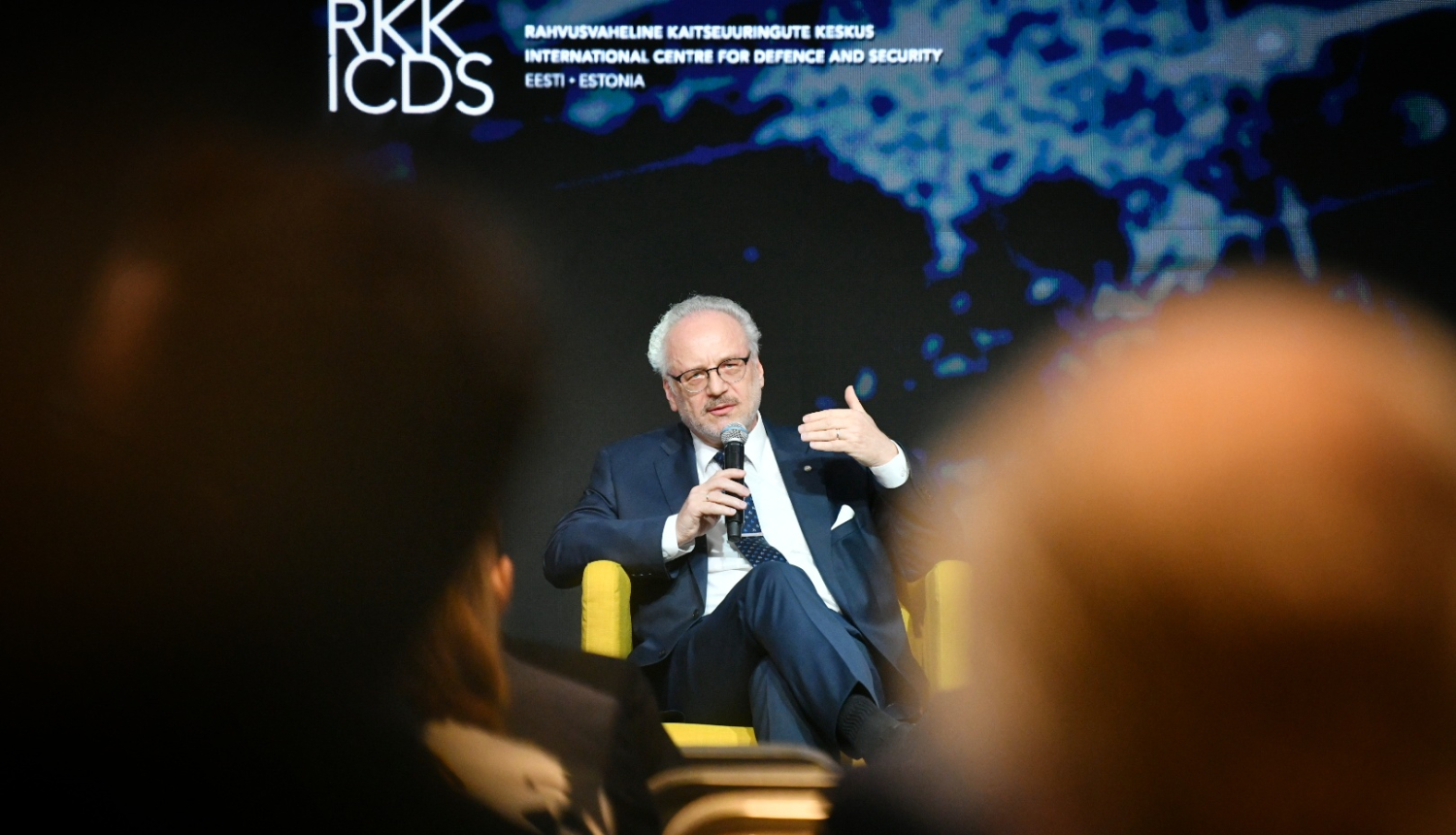On 5 September, President of Latvia Egils Levits took part in Lennart Meri Conference in Tallinn where he joined other panellists, such as President of Estonia Kersti Kaljulaid, former management board member of Deutsche Bahn AG Dr Sabina Jeschke and Swedbank President and CEO Jens Henriksson, for discussion “Non Ducor, Duco: I am Not Led, I Lead”. President’s remarks focused on Europe’s regional infrastructure, economy and connectivity projects.
In his address to the participants of the conference, President Levits underlined that 30 years ago Baltic nations found a way to organise the Baltic Way and unite around shared objective, choosing real leaders of the people and achieving independence, without the use of high technologies: ‘30 years ago we decided we want out of the Soviet Union. Our independence leaders, the collective efforts of the Baltic nations changed the world map and, this is something I want to specifically stress, it did not happen because USSR was already crumbling – it happened because our independence movements coordinated and were determined to achieve that’.
On the current day Europe, President Levits pointed out that Europe is one of the economic and climate change leaders in the world, but it needs to strengthen its political role globally. ‘Europe and the US are the leading world economies and even though we are different global players we are bound by transatlantic relations’.
He also mentioned the potential of the Three Seas Initiative (3SI) platform as the enabler of economic and green technology development projects. ‘Platform for all kinds of better transport, energy and digital connectivity between the Baltic, Black and Adriatic Sea regions is crucial for the overall development of Europe. Latvia is ready to actively contribute to this goal also as the host of the 2022 3SI summit,’ said President of Latvia.
President was also asked about future digital connectivity in Europe to which he replied by underlining the importance of addressing technology-related legal issues as soon as possible: ‘We must clearly define what we expect from technologies and how to achieve that through appropriate regulation. We must make absolutely sure that we control technologies instead of technologies ruling our life’.




